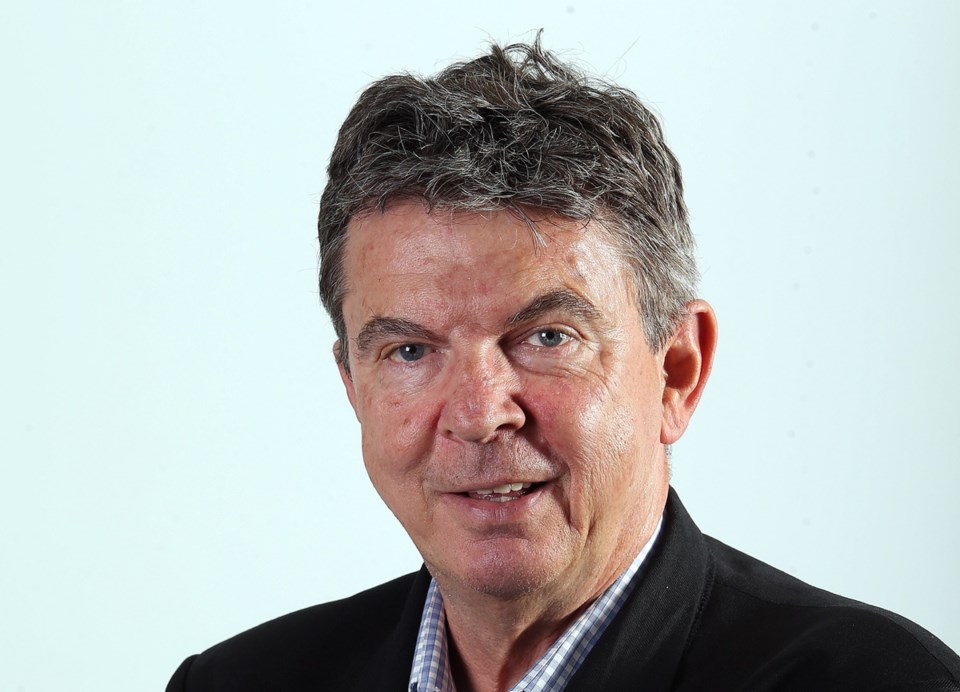 Just what the capital needs — more mayors. Dozens of them, and hundreds of councillors, will be arriving next week for the annual Union of B.C. Municipalities convention at the Victoria Conference Centre.
Just what the capital needs — more mayors. Dozens of them, and hundreds of councillors, will be arriving next week for the annual Union of B.C. Municipalities convention at the Victoria Conference Centre.
There are almost as many issues as there are delegates (1,000 are expected) but two of them are going to dominate — and compete with the royals for media attention.
One is the stunning number of overdose deaths in B.C. this year, a fatality count that is stressing all levels of government, but particularly local ones.
The other is housing in general. A lot of talk is expected about homelessness, tent cities and the burst of activity from the provincial government this year aimed at doing something about real-estate prices, mostly in Metro Vancouver.
The B.C. Liberals stayed hands-off as real-estate prices spiralled out of control in Vancouver, and to a smaller extent elsewhere. Then, once the public conversation fixated on how foreign — mostly Chinese — buyers were propelling the prices up, the government was prompted to act.
A surtax was imposed this summer on $2-million-plus property buys. The long-abandoned practice of requiring disclosure of citizenship of buyers was reinstituted in June. After assorted revelations about lax oversight, regulation of the real estate industry was blown up and rejigged.
Based on a few weeks of data about foreign buyers, the legislature was called in August to impose a 15 per cent tax on foreigners buying in metro Vancouver, and approve the city of Vancouver’s plans for a vacancy tax. As well, $500 million was committed to a housing blitz that is supposed to take shape over the next six months.
Price increases have eased off, but the government is still in the wait-and-see stage when it comes to judging whether the controversial tax is working. A batch of numbers was released Thursday, but it’s almost impossible to base any judgments on them.
UBCM delegates will arrive in that landscape with a few ideas of their own about housing affordability. The B.C. government has never been shy about urging local governments to expedite new residential housing and shorten the long waits for approvals. Some pushback against that complaint might be in the works.
There is some talk about a special resolution to do with municipal development-cost charges that would likely carry the message of telling the province to mind its own business.
There is also room on the agenda for a study session on tent cities and homelessness. Several communities have gone through what Victoria experienced through most of this year — uncontrolled tent cities springing up on public space.
Legally speaking, they arise out of a B.C. Supreme Court ruling that homeless people have a constitutional right to shelter themselves from the elements. Dealing with that will be up for discussion, with Victoria Mayor Lisa Helps and Housing Minister Rich Coleman scheduled to present.
There’s one plenary spot on the agenda where all the side sessions are suspended so the entire focus is one issue. It’s the fentanyl-overdose epidemic. A public-health emergency was declared provincewide five months ago after the number of fentanyl-detected deaths in 2016 skyrocketed to more than 100.
More than 160 people have died since then, so the 2016 fatality count now stands at 264 to the end of July, 222 per cent higher than the same period last year.
Far more people will die from illicit drug overdoses this year in B.C. than from vehicle crashes.
Local governments employ many of the first-responders who are dealing with the body count, so what they can do to support the provincial and federal responses (the House of Commons held an emergency debate this week on the issue) will be on the table.
Just So You Know: The slogan adopted for this year’s gabfest is “Stronger Together,” which is the same slogan Hillary Clinton has been using for months. But the UBCM said it was adopted before she was nominated as a presidential candidate.
My preference was “Make Lumby Great Again.”


